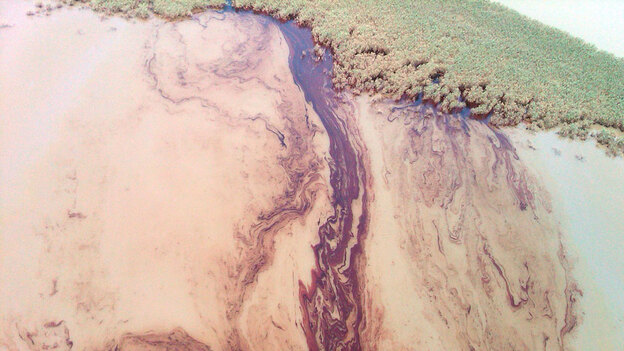 Toni Brink (pictured at right) was a dietician for over three decades. Today, she sees the U.S. fossil fuel diet as not only unhealthy, but destructive. She doesn’t just hope that President Obama helps us get a better diet, she is doing something about it.
Toni Brink (pictured at right) was a dietician for over three decades. Today, she sees the U.S. fossil fuel diet as not only unhealthy, but destructive. She doesn’t just hope that President Obama helps us get a better diet, she is doing something about it.
This week Brink, a 66-year-old mother of five and grandmother of ten will join the No Tar Sands (their Twitter feed) protests in front of the White House in Washington, DC.
Over the last week and a half, hundreds of people have joined noted environmental author and activist Bill McKibben (see 350.org). climate scientist James Hansen, and writer Naomi Klein to protest the Keystone XL pipeline. The proposed pipeline would bring oil from the tar sands of Alberta to the Gulf of Mexico across vulnerable habitats in the Midwest. A broad coalition of Midwest residents, farmers, conservationists, and scientists worry about the pipelines’ and tar sands’ long-term effects.
“If that oil is taken out it’s a dirty process,” says Brink referring to the tar sands extraction process. Matt Price of the Environmental Defense Fund says that the Florida-sized affected region of Alberta where the tar sands lie is effectively destroyed. And the waste ponds left from the process can be seen from space.
Proponents say that Canada’s proximity to the United States can help us use energy that comes from friendlier sources with less travel. However, the process from beginning to end is itself very fuel-intensive, yielding little energy compared to the energy return from the sands themselves. Daily, tar sands production generates the amount of greenhouse gases of approximately 1.3 million cars. Those effects combine with the tar sands refinement and its eventual use as fuel to create one of the most greenhouse gas intensive fuels on Earth.
Brink says. “The use of that oil will raise the temperature of the Earth more. It’s already evident that we have extreme weather. It could play into making the Earth uninhabitable to humans or at least unfriendly,” she says. Climate and atmospheric scientists have predicted that storm, flood, drought, and heat wave intensity as human fossil fuel use generates more greenhouse gases.
The Pew Center on Global Climate Change reports that hurricanes in the Atlantic Ocean have become both more frequent and more intense in recent years consistent with predictions by scientific bodies like the Intergovernmental Panel on Climate Change. High temperature records have also been more frequent and heat waves longer and more intense.
Noted climate scientist James Hansen has said similar things. Writing on Huffington Post, he says,
Easily available reserves of conventional oil and gas are enough to take atmospheric CO2 well above 400 ppm, which is unsafe for life on earth. However, if emissions from coal are phased out over the next few decades and if unconventional fossil fuels including tar sands are left in the ground, it is conceivable to stabilize earth's climate.It’s not just climate or extraction. “The pipeline will go over the Oglala aquifer in the Midwest. And they say the pipeline won’t leak but there’s no guarantee,” says Brink. Indeed, the pipeline would transect farmland and interrupt wildlife corridors. However, the risk of spill is predicted to be very low by the State Department. Russ Girling, the President of company proposing the pipeline has said, "[T]he Keystone XL pipeline will have no significant impact on the environment.” But Midwest residents are not convinced.
Phasing out emissions from coal is itself an enormous challenge. However, if the tar sands are thrown into the mix, it is essentially game over. There is no practical way to capture the CO2 emitted while burning oil, which is used principally in vehicles.
And what about our energy infrastructure? Brink worries that increasing U.S. reliance on tar sands and the Keystone XL will harm us in other ways. “I’m afraid it will divert from renewable energy sources like solar, wind, and geothermal and also from energy conservation.” Currently, the United States gets only a tiny portion of its energy from renewables. But if Richard Alley is correct in his program, Earth: The Operator’s Manual, things could be different with the major proportion of our energy coming from renewables if society and economy could be rearranged.
Tomorrow she is going to risk arrest at the White House. “I think it’s really important. Future of life on our planet depends on it.” Like many who have engaged in non-violent civil disobedience before her, she believes that this is the right thing to do. It shows that a large number of people think that this issue needs to be visible.
The protestors, she said, “speak out by putting their bodies on the line.”
What does this all come down to? “We could do so much better,” said Brink. So she is going to put her own body on the line.
---
If you care to follow up, Tar Sands Action asks that you call or write President Obama or send a letter to the editor of your local paper to speak against the Keystone XL pipeline. Brink agrees.

